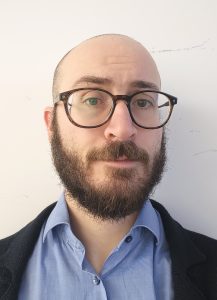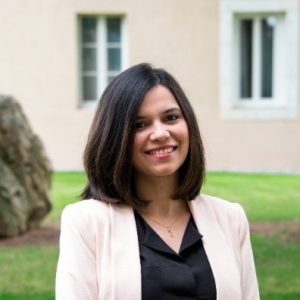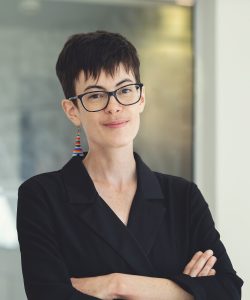Rural Villages, Migration, and Intercultural Communication (VICO)
VICO is a sociolinguistic study of migration in rural areas. The project works with local communities to produce new knowledge on the everyday experience of migrants and refugees, and how Irish rural communities are dealing with linguistic and cultural diversity.
In 2017, the Republic of Ireland had the 4th highest share of migrant population in rural areas in the EU with 11.9%: more than twice the EU average (JRC 2019). Migration in rural communities presents specific challenges and opportunities, linked to factors such as transportation, job market, community cohesion and demographics. It can be particularly challenging for migrants who are international protection applicants: the 2021 White Paper to End Direct Provision linked Direct Provision centres in rural areas with feelings of isolation especially for young and LGBTQI+ asylum seekers. Language is a key component in building better relations within the community and improving migrants’ opportunities to participate in society, culture, and the economy.
Recent sociolinguistic research has advanced our understanding of the link between linguistic diversity and socio-economic inequalities in a globalised world (Blommaert 2010; Pennycook and Otsuji 2015; Piller 2016). This research, however, has mainly engaged with highly diverse urban areas. VICO aims to improve our knowledge of migrant and refugee integration in rural areas, by looking at how language generates challenges or opportunities for intercultural communication and development. It aims to investigate how individuals and families who relocate in a rural community use different languages to confront the unfamiliar landscape, create a space of familiarity, and establish a connection with the place. The project achieves its aims through the realization of four specific objectives (SOs):
- Investigate the linguistic repertoires of migrants/refugees living in rural areas, their strategies for expanding their linguistic repertoires, and the obstacles that they face.
- Assess the availability and practice of translation/interpreting for migrants and refugees in rural Ireland.
- Research the opportunities in rural areas for involving migrants/refugees in cultural production; and the impact that this has on self-perception of migrants and the communities.
- Explore the potential for migrants and refugees to contribute to shared conversation on rural development.
Researchers
 PI: Dr. Andrea Ciribuco
PI: Dr. Andrea Ciribuco
Dr Andrea Ciribuco is a lecturer in Italian at the University of Galway. His research interests include the practice of translation/interpreting in contexts of migration, migrant literature, and the links between multilingualism and creativity.
He completed his PhD at NUI Galway in 2016, with a thesis on multilingualism in the works of Italian American author and translator Emanuel Carnevali. The thesis formed the basis for the monograph The Autobiography of a Language, published in 2019 by SUNY Press..
In 2017, he was awarded an IRC/Marie Sklodowska-Curie CAROLINE Fellowship for a project on multilingualism and translation in the lives of refugees in Italy at the time (2017-2021). He worked for two years on secondment with the Italian NGO Tamat, developing Italian language courses and doing research in language classrooms and refugee accommodation centres. This research has been published in journals such as Translation Studies; Language and Intercultural Communication; and Translation Spaces. In 2022 he co-edited with Anne O’Connor a special issue of Translation and Interpreting Studies on the intersection of translation studies and material culture.
In 2021, he was co-investigator of the STRIVE project (Sustainable Translations to Reduce Inequalities and Vaccination hEsitancy), led by Federico M. Federici at University College London. The project was funded by the British Academy and investigated the role of interpreters and intercultural mediators in the COVID-19 vaccination campaign in Italy.
In 2022, he rejoined the University of Galway as a lecturer in Italian. He is one of the co-investigators of the MISTE project (Multilingual Island: Sites of Translation and Encounters) funded by the HEA. In 2022, he was awarded an IRC Laureate grant for the VICO project (Rural Villages, Migration, and Intercultural Communication). In 2023, he became a member of the inaugural cohort of the Young Academy of Ireland.
Contact email: andrea.ciribuco@universityofgalway.ie
Postdoctoral Researcher: Dr Pilar Luz Rodrigues

Dr. Pilar Luz Rodrigues is a Postdoctoral Researcher at the University of Galway. Previously, she was as a Research Assistant at the South East Technological University (SETU), working with the Dean of the School of Humanities on social and health related research projects. She also taught several courses within the School of Humanities at SETU between 2017 and 2023. Dr. Rodrigues concluded her PhD in Sociology in 2023, under the President’s Scholarship, with a thesis titled “Mitigating the Effects of Precarity: Brazilian Migrant Workers and Place-Making in Rural Ireland”. Her research involved one year and a half of fieldwork with Brazilian migrant workers in rural Ireland, particularly in Gort, Ireland’s Little Brazil. In addition, Dr. Rodrigues has had research experience at international organizations, such as the International Organization for Migration (IOM – UN Migration), and NGOs, such as the Irish Council for International Students (ICOS). She is a member of the Race and Ethnicity Study Group of the Sociological Association of Ireland (SAI), and of the Sociology of Migration Research Network of the European Sociological Association (ESA). Her research interests include migration, social policy, and cultural diversity.
Contact email: pilar.luzrodrigues@universityofgalway.ie
Postdoctoral Researcher: Dr Sam Goodchild (January-December 2023)

Before joining the University of Galway in January 2023, Dr Goodchild was a Postdoctoral Research Fellow at the Centre for Multilingualism in Society across the Lifespan, University of Oslo. From 2020-2022, she studied young people’s language practices in Oslo using a collaborative methodology called citizen sociolinguistics. She gained her PhD from SOAS University of London (2019), during which she researched multilingual practices in a rural village in Senegal. She has given guest lectures and workshops at numerous universities internationally including the University of Oslo, INALCO Paris, and the University of Leeds. She is particularly interested in the relationship between language and space and multimodal communicative practices. Her (co-authored) research has been published in edited volumes, handbooks, and journals such as the International Journal of Bilingual Education and Bilingualism.
Contact email: samantha.goodchild@universityofgalway.ie
Project Details
Year(s): 2022-2026
Funded By: Irish Research Council Laureate Award (Starting)

